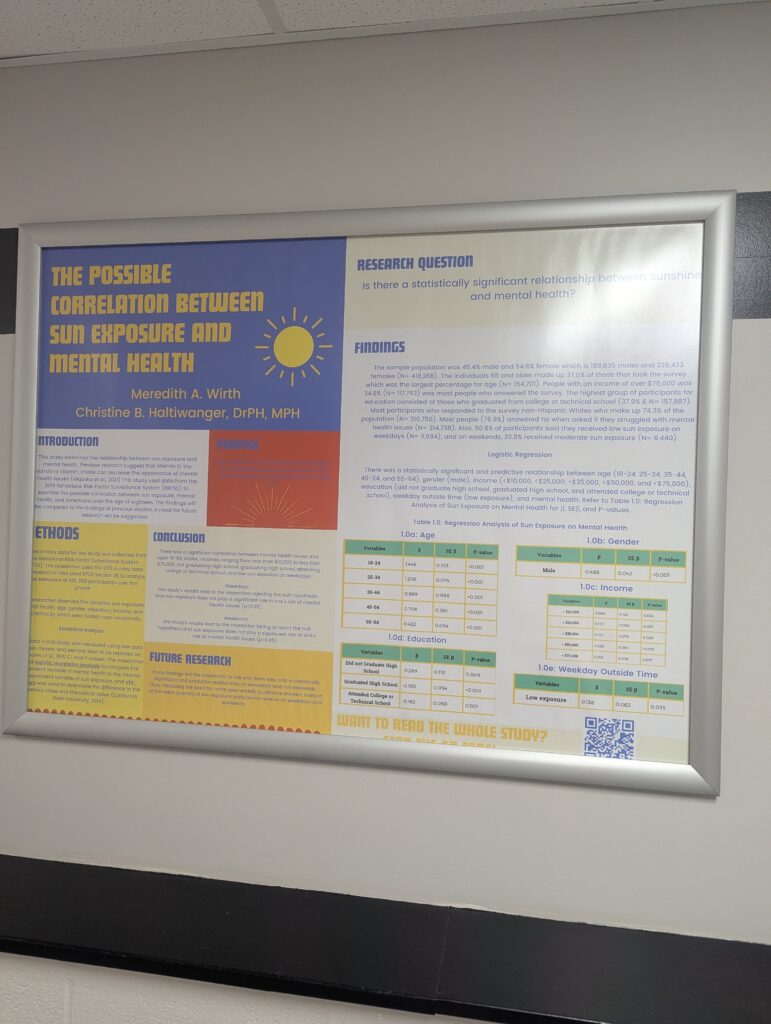
Biology symposium preview: Student research to be presented at NGU
Kayla Strange, Staff Graphic Artist
North Greenville University will host its annual biology symposium on Thursday, May 1, in the Crain science building. This event will have research projects that are created by NGU’s health science and biology students.
The symposium gives an in-depth look at how the students can apply scientific methods to solve issues.
Emma Jane, health science major, has her research focused on the connection between nutrition and also mental health. As part of her second year research analysis, she decided to investigate whether a high diet in fruits and vegetables could influence some levels of anxiety.
Using SPSS, which is a software program, she analyzed the data and found that there was a strong correlation. People with diets high in fruits and vegetables were reported to have lower anxiety.
Emma chose this topic because of the growing mental health crisis and also because of her passion for health measures. Her findings could potentially help larger conversations about using nutrition as a tool in mental strategies.
Hannah Pierce, a biology major, did a microbiology lab project that takes a global approach to problem solving. She has been researching the filtration of Moringa seeds, which are natural resources to purify contaminated water. The project’s goal is to find sustainable and affordable methods for giving clean water in foreign countries where water is limited.
Hannah’s work stands out because it combines plant biology, microbiology and human needs. By demonstrating the seeds’ effectiveness in filtering water, her project shows a potential life saving solution that could be used worldwide at small cost.
Meredith Wirth’s research was on the connection between time spent in the sun and mental health. She worked with a large sample of over 400,000 people, and she used a statistical analysis to study patterns that were related to sun exposure.
Her main results found that individuals who had spent more time outdoors during the week had reported better mental health compared to those who stayed inside. She also discovered that age and even income had affected the results. Her study shows that getting more sunlight could be a way to support better mental health.
